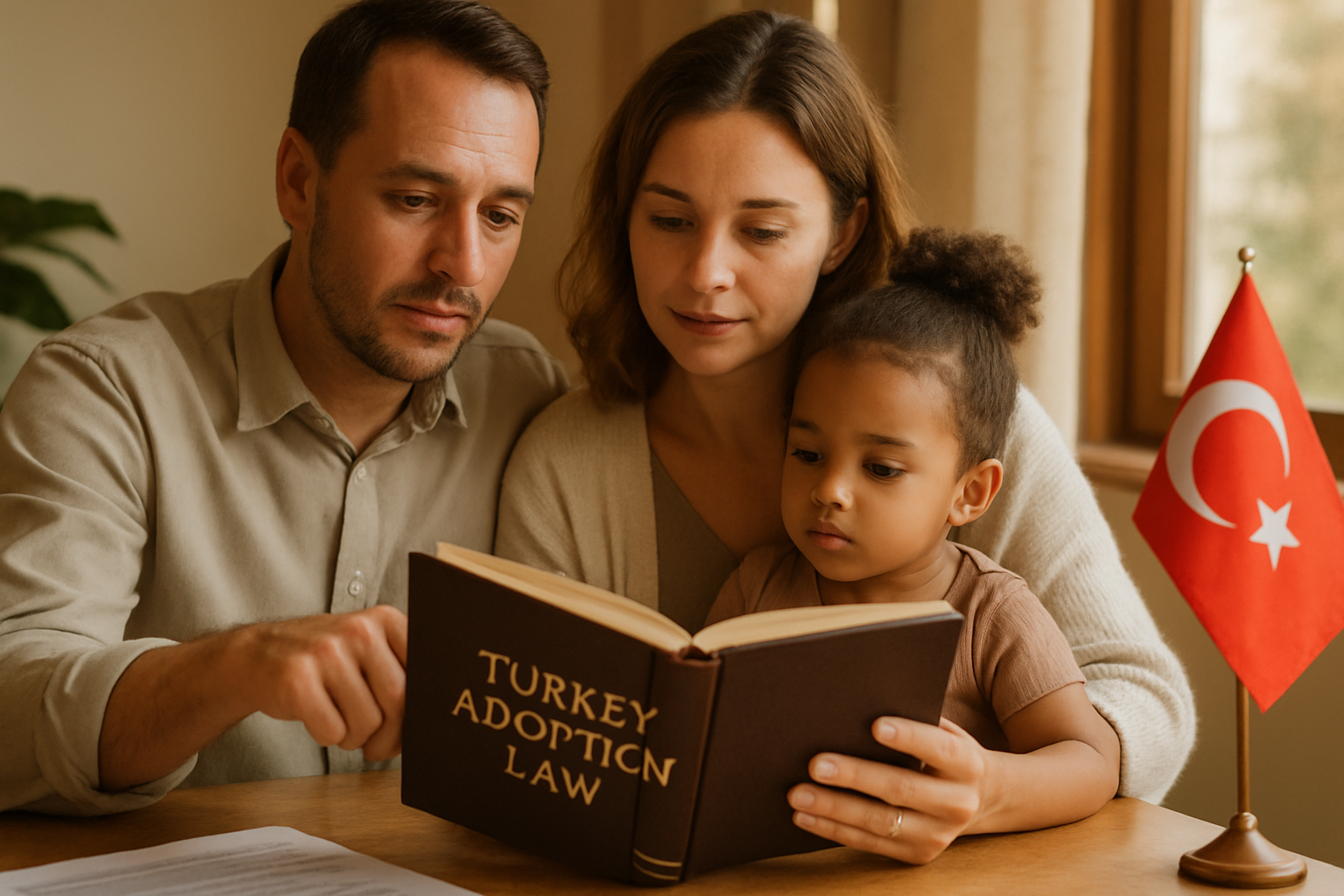Child Adoption Laws: Adopting in Turkey as an Expat

Moving to a new country as an expat brings both excitement and challenges, especially when it comes to starting or completing a family. For many expats living in Turkey, adopting a child in their new home can be a rewarding but complex journey. Understanding Turkey’s child adoption laws is crucial before starting the process, as expats need to navigate legal steps, cultural expectations, and eligibility requirements. This guide outlines the practical aspects of child adoption in Turkey aimed specifically at expats, highlighting key features, requirements, and benefits of the Turkish adoption system.
Understanding Eligibility for Adoption as an Expat
Before starting the adoption process, expats must know whether they meet Turkey’s legal requirements. Turkish law states that both Turkish citizens and foreigners can adopt, but with specific regulations for each group. Expats often wonder whether their residency status affects eligibility.
- The primary applicant must be at least 30 years old, unless adopting as a married couple.
- Married couples must have been married for at least five years or both be over 30 years old.
- Single applicants are also eligible but must be at least 30.
- Expats must hold a valid long-term residence permit in Turkey.
- Proof of steady income and a clean legal record are required.
For example, a British couple living in Istanbul with long-term residence permits and steady employment would generally meet these criteria. This clarity in eligibility rules provides a clear path for expats, avoiding common roadblocks in the initial stages.
Navigating the Adoption Application Process
The adoption process in Turkey involves several formal steps that ensure the child’s welfare. The journey starts at the Social Services and Child Protection Agency (Sosyal Hizmetler ve Çocuk Esirgeme Kurumu, SHÇEK).
- The process begins with a formal application, including documentation such as marriage certificates, medical reports, proof of income, and residence permits.
- A comprehensive home study evaluates the applicant’s living situation, financial stability, and overall preparedness for parenthood.
- Interviews and home visits by social workers help assess the applicant’s suitability.
- In some cases, additional documentation from the expat’s home country may be requested.
Applicants benefit from this step-by-step process because it provides structure and reassurance. For example, an American expat in Ankara submitted an application and welcomed the scheduled home visits, which helped demonstrate his ability to provide a safe environment. The process may feel intense but has the child’s best interests at heart.
Legal Requirements and Cultural Expectations
Beyond legal procedures, unique cultural expectations can shape the adoption journey in Turkey. Turkish authorities look for applicants who understand and can navigate local customs.
- Knowledge of the Turkish language is not mandated, but it helps in building relationships with social workers and the child’s community.
- Authorities look favorably on applicants who integrate well into Turkish life.
- Expats should be aware of family dynamics in Turkey, which often revolve around extended family support.
- Respect for Turkish traditions and background is appreciated, especially during official meetings or interviews.
For expats, embracing local customs offers practical advantages. For example, a Dutch couple who learned basic Turkish found that it helped them build rapport with agency staff and made the transition smoother for their adopted child.
After Adoption: Integration and Family Support
Post-adoption, expat families benefit from various support structures in Turkey. Children adopted legally receive the same rights as biological children in areas such as citizenship, inheritance, and family name.
- Adopted children may qualify for Turkish citizenship if one parent is a Turkish citizen.
- The Social Services agency offers ongoing support, including counseling and integration advice.
- Support groups for expat families provide networking and guidance.
- International adoption agencies and local NGOs sometimes offer additional resources for language learning and cultural adjustment.
For instance, an Australian family who recently adopted a Turkish child in Izmir noted the benefits of language support and child counseling services provided by local organizations. These services play a key role in helping expat families and their new children develop strong emotional bonds.
Key Takeaways and Advantages for Expat Families
Choosing to adopt in Turkey brings many advantages for expat families willing to commit to the process. The Turkish system offers a clear structure, legal protections, and supportive frameworks to facilitate a smooth transition for both parents and children.
- A transparent, step-by-step procedure that builds confidence for applicants
- Equal legal rights for adopted children, fostering stability
- Access to post-adoption support and resources
- Opportunities for deep cultural connection with Turkish life
Expats who respect the process and embrace Turkish culture can thrive as adoptive parents. While every adoption journey is unique, understanding local laws and engaging with the Turkish community ensures the process is not only legally secure but also emotionally fulfilling. Navigating the adoption process in Turkey can transform challenges into profound family experiences, making the country a welcoming place for building families across cultures.
